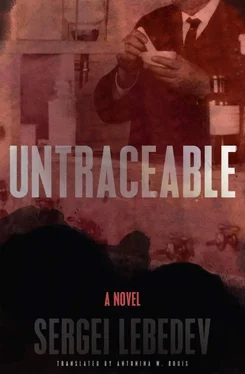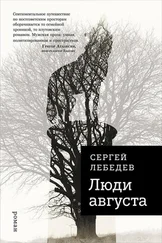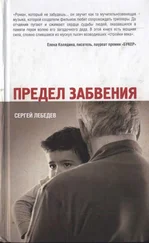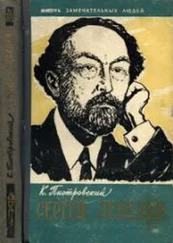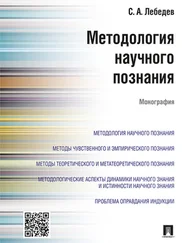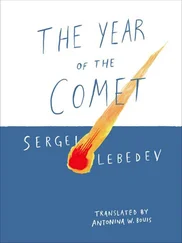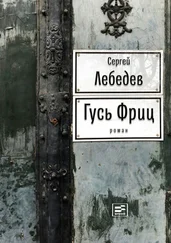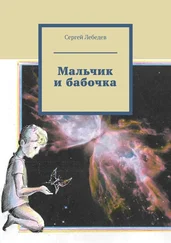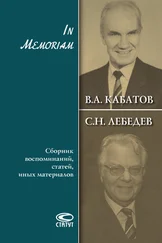Сергей Лебедев - Untraceable
Здесь есть возможность читать онлайн «Сергей Лебедев - Untraceable» весь текст электронной книги совершенно бесплатно (целиком полную версию без сокращений). В некоторых случаях можно слушать аудио, скачать через торрент в формате fb2 и присутствует краткое содержание. Город: New York, Год выпуска: 2021, ISBN: 2021, Издательство: New Vessel Press, Жанр: Современная проза, на английском языке. Описание произведения, (предисловие) а так же отзывы посетителей доступны на портале библиотеки ЛибКат.
- Название:Untraceable
- Автор:
- Издательство:New Vessel Press
- Жанр:
- Год:2021
- Город:New York
- ISBN:978-1-939931-90-0
- Рейтинг книги:3 / 5. Голосов: 1
-
Избранное:Добавить в избранное
- Отзывы:
-
Ваша оценка:
- 60
- 1
- 2
- 3
- 4
- 5
Untraceable: краткое содержание, описание и аннотация
Предлагаем к чтению аннотацию, описание, краткое содержание или предисловие (зависит от того, что написал сам автор книги «Untraceable»). Если вы не нашли необходимую информацию о книге — напишите в комментариях, мы постараемся отыскать её.
Untraceable — читать онлайн бесплатно полную книгу (весь текст) целиком
Ниже представлен текст книги, разбитый по страницам. Система сохранения места последней прочитанной страницы, позволяет с удобством читать онлайн бесплатно книгу «Untraceable», без необходимости каждый раз заново искать на чём Вы остановились. Поставьте закладку, и сможете в любой момент перейти на страницу, на которой закончили чтение.
Интервал:
Закладка:
The agent died seven years ago. Kalitin had attended his funeral. The family thought it was a neighborly gesture. Kalitin had been accepted in the village, he fit in among these insular people who disliked strangers, because he was like that himself. Seeing him there, Pastor Travniček nodded his stone-like head in approval and benevolence. But Kalitin, he had come to bury a witness.
He was certain that the real estate agent had not left behind any personal notes, any diary nonsense. Only receipts, accounts, contracts, disciplined and uncommunicative. The pastor gave a short sermon, something about the gift of honesty. Kalitin liked looking at the shellacked coffin lid, beneath a spattering of infrequent but large raindrops, like the ones that fell on the first day he came here.
They had driven in silence. They passed the church, the village, the yellowed slopes billowing like sails, the dells overgrown with hazel and echoing with the sound of bells.
The road, surrounded by apple trees, led upward. Boars ran out of the bushes, feasting on fallen apples. The entire valley was visible—without a single house. The eye could not find a place where it could be hidden: no clumps of trees, no hollows. It seemed the agent was driving for nothing. Kalitin would have stopped and turned around: they had passed some invisible line that marked the limit of inhabited places and entered into unpopulated territory.
The road smoothly bent to the left, clearing away the optical illusion of the landscape that hid the upper level of the valley. There, in the shadow of a beech forest that grew along the ridges of the hills, stood a solitary house.
The house was wooden. But the wood seemed to have ossified, the way the supports do in salt mines. A house composed of dark logs, as if the bitter, cool juices of this stony land still slept in the dry felled trunks. Blinds in the windows. A few apple trees higher up the slope, gone wild, losing variety and species. The nearby mouth of the forest where the road ended, sending the scents of the brook’s flinty coolness and the sweet rot of the broad, slow-dying beech leaves.
Unexpectedly a blue-gray cloud rose heavily from behind a hill. Large drops, soft and lisping somehow, began to fall. The agent opened an umbrella, but Kalitin was already striding toward the house, feeling those insouciant drops falling from a nearby cloud.
Kalitin expected furniture inside. For some reason he envisioned a grand piano, strangers’ photos over the wardrobe, redand-white checked tablecloths, stag horns above the fireplace, a worn leather couch. The house was completely empty. Just a pile of ash and coals in the fireplace, as if the previous residents had taken away everything changeable, which could pass from hand to hand and switch owners, and had burned everything important, essential.
At first he was discouraged, upset, as if the ashes truly were the remains of someone’s life. But then, accustomed to semiofficial housing, he felt the strange charm of the emptiness that he would have to fill with new things that were his and his alone. He felt the twilight allure of the forest. The quiet call of the hills, their readiness to stand guard, shield, be vigilant in the night.
It was at that moment that he decided to buy the house. The real estate agent carefully propped his damp umbrella against the wall and spoke slowly, ceremoniously.
“I think you will like it here. It is a good place.”
CHAPTER 8
Shershnev was in the first row of economy. Next to him, in 6C, was Major Grebenyuk. His partner. They had been offered business class, but Shershnev refused: no need to be so visible.
The lieutenant colonel looked at his boarding pass once again: ALEXANDER IVANOV, 6D. He had a passport and visa in that name. Although they were brought through a special corridor bypassing customs control and inspection, a border officer still stamped the passport.
The crew—it was a state airline—had been alerted there were special passengers on board. His partner, a military technician, an engineer with epaulets, had a bottle of deodorant from an expensive toiletries line in his carry-on that complied with airline requirements: under three ounces or one hundred milliliters. The specialists chose the brand, deciding which bottle was more convenient to accurately reproduce. They had considered sending the substance by diplomatic pouch and picking it up on the other side of the border, but they decided that bringing it along was faster and safer, since they would not have to meet up with the embassy courier, who could be tailed.
They flew at night. A late flight that would land early in the morning, when the sleepy, tired border guards and customs agents would be less picky. His partner was settling down to sleep. He leaned back his seat, even though that was not allowed during takeoff. The cabin purser did not reprimand him—she knew who they were.
The plane was still at the gate. They were waiting for some idiots in business class. Probably blotto, thought Shershnev. Afraid of flying, so they drank for courage.
He wouldn’t have refused a shot himself. He felt uncomfortable. Behind them was a foreign couple—Czechs, he thought—with two children. The infant, despite his concern, fell asleep quickly. But the girl seated behind Shershnev, an active, skinny kid with thin blond braids, whom he had noted at check-in, when she tried to jump onto the baggage conveyor belt, kept kicking his seat.
The blows hurt his lower back. It was economy class; the upholstery was pathetic. Shershnev regretted not taking business class. He had turned around once already, glaring at her. She seemed to quiet down. But a minute later, she was kicking his seat again, harder, more persistently.
They were under orders to keep a low profile on the plane. No changing places with other passengers. No getting into arguments. The girl must have sensed it and mocked Shershnev. He spoke to the parents in English and in Russian. They either did not understand or because they could not control the child pretended not to understand. He made gestures to show that their daughter was disturbing him, but the mother merely smiled and shrugged.
Passengers bored by the wait were looking at them from neighboring rows. Shershnev thought it better to get back in his seat and not call the stewardess. Everything the state had provided him with was useless against a little brat who took him for a weakling who could not fight back.
He even thought about the bottle in his partner’s carry-on bag. How he could get it out and…
Suddenly he imagined that the girl was sensing his hidden thoughts. In the ether. She sensed Shershnev, not Ivanov. The real Shershnev. Unusual, nervous children can do that. He knew. When Shershnev returned from his second tour in the Chechen war, Maxim, an infant, cried hysterically whenever he picked him up. He grew rigid, lost his breath, screamed until he was hoarse—and calmed down easily in Marina’s arms. A few weeks later, Shershnev felt that he was getting over his wartime experiences—and his son allowed his father to hold him.
The girl could see right through him. And she was protecting herself as best she could.
Shershnev turned and peered into the space between seats. The girl looked back at him: with incomprehension and anxious curiosity. Shershnev wanted to crush her with his stare. But then he remembered a game he used to play with Maxim long ago. He got his pen and drew a funny face on the fleshy pillow between thumb and forefinger, bending his fingers to make it look like the little person wanted to talk.
The girl smiled and relaxed, she fell asleep before his eyes, as if she had just needed a small dose of fun to relieve her tension. Shershnev wiped off the ink and also relaxed. The late passengers finally arrived, and the plane pulled back from the gate. The crew started the safety instructions, a cork popped softly in business class and champagne fizzed.
Читать дальшеИнтервал:
Закладка:
Похожие книги на «Untraceable»
Представляем Вашему вниманию похожие книги на «Untraceable» списком для выбора. Мы отобрали схожую по названию и смыслу литературу в надежде предоставить читателям больше вариантов отыскать новые, интересные, ещё непрочитанные произведения.
Обсуждение, отзывы о книге «Untraceable» и просто собственные мнения читателей. Оставьте ваши комментарии, напишите, что Вы думаете о произведении, его смысле или главных героях. Укажите что конкретно понравилось, а что нет, и почему Вы так считаете.
